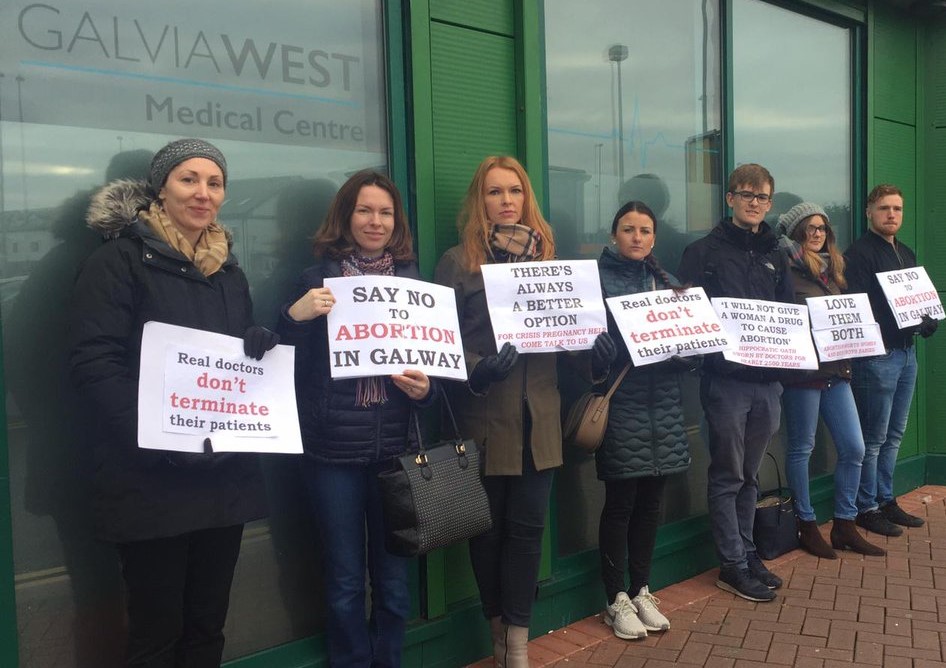
A US District judge has blocked new rules that granted a religious freedom accommodation to employers who had a conscientious objection to providing abortifacient and contraceptive coverage for their employees.
The original regulation from the Obama administration forcing all employers to provide such coverage was found to be unconstitutional by the Supreme Court. That case had been taken by a convent of nuns, the Little Sisters of the Poor, who objected to paying for health coverage that included contraceptives and abortifacients.
The exemption proposed by the Trump administration allowed employers and insurers to decline to provide birth control if doing so violated their “religious beliefs” or “moral convictions”.
It has now been blocked by a Federal District judge in Philadelphia. It is expected the decision will be appealed.

The European Parliament has called on the EU institutions to step-up their work promoting and defending religious freedom around the world.
Yesterday the Parliament overwhelmingly passed a resolution to that effect with 576 in favour, only 46 against, and 73 abstentions. In the resolution, the Parliament expressed, “its deep concerns that recent years have seen a dramatic rise in violations of Freedom of Religion or Belief worldwide,” and that violations of this fundamental freedom “undermine democracy, impede development, and negatively affect the enjoyment of other fundamental freedoms and rights.” Therefore, the international community, the EU, and its Member States should “reaffirm their determination and strengthen their actions in promoting FoRB (Freedom of Religion or Belief) for all.”
Commenting on the development, Alice Neffe, Legal Counsel for ADF International in Brussels, said
“Nobody should be persecuted for their faith. Ahead of the European elections in May, the European Parliament is sending a clear message with this report. The European Union should take seriously its responsibility to protect the fundamental right to freedom of religion. The Special Envoy for Freedom of Religion or Belief and the EU Guidelines already provide the necessary instruments. With the institutionalization of the Special Envoy position, and the strengthening of the mandate, the European Union can and should be better positioned to help ensure religious freedom worldwide.”

The UK Court of Appeal will hear a pro-life activist’s challenge against London’s Ealing Council regarding its Public Spaces Protection Order (PSPO), which criminalised pro-life activity outside abortion clinics. Simon Harris is considering a similar nationwide ban here. If imposed, it would be the first nationwide ban in Europe.
According to the Order, no one near the business may express approval or disapproval of abortion, pray, hand out literature offering material support to women who might wish an alternative to abortion, or “interfere” with the business’s clients in any way.
Alina Dulgheriu lost her original case in the High Court but was “delighted” that the Court of Appeal will reconsider that decision. She herself changed her mind about having an abortion when she was approached by pro-life activists outside an abortion clinic. She is shocked that the Council had “criminalised charity and attempted to remove dedicated and caring individuals from public space without justification.”
“I cannot imagine a society where a simple offer of help to a woman who might want to keep her child is seen as a criminal offence,” she added. “I refuse to accept that women should be denied the opportunity to receive help where they want to keep their child.”
Although powerful supporters of the UK abortion industry called for similar PSPOs to be imposed across the country, even some pro-abortion British activists protest using PSPOs to shut down freedom. In May 2018, leading LGBT activist Peter Tatchell was among the pro-abortion signatories of a letter to the Times condemning the Ealing Council PSPO.
Last September the British Home Secretary, Sajid Javid, announced that he would not be imposing nationwide “buffer zones” outside abortion businesses, saying that such a measure “would not be a proportionate response” given the realities of pro-life activism in the UK.

Doctors in the UK will be asked if they would personally help a terminally ill patient commit suicide and whether they would support changing the law to permit assisted suicide.
In sharp contrast to how Irish legislators and medical bodies proceeded with legislating for abortion, the Royal College of Physicians (RCP) is to poll its 35,000 members on their views before forming a corporate position. RCP president Professor Andrew Goddard said the College is frequently asked for its stance on this high-profile issue, which may be cited in legal cases and parliamentary debate, so, “it is essential that we base this on an up-to-date understanding of our members’ and fellows’ views.” The RCP said it will adopt a neutral position until two-thirds of respondents say that it should be in favour or opposed to a change in the law. It said this means it will neither support or oppose a change in the law so it can reflect the differing views of its members and fellows in discussions with government and others.
Assisted suicide is illegal in the UK, with doctors facing a jail term of up to 14 years under the Suicide Act 1961. Countries like Netherlands and Belgium have seen a sharp rise in the number of assisted suicides since each legalised it, or broadened the grounds for it.

The national broadcaster has been attacked over its portrayal of nuns in Resistance, its new historical drama on the War of Independence. Speaking to the Irish Catholic, Fr Conor McDonough OP, said that a sub-plot involving nuns the drama showed an astonishing lack of nuance and balance. The true story upon which the sub-plot is loosely based involved a woman losing custody of her son after a court battle with her parents-in-law, only to be reunited with him, thanks to the help of a priest, by agreeing to spy for the IRA.
“The writers of the show apparently felt this story lacked something so they modified it: now the woman has her child taken from her by nuns, who effectively sell her child to wealthy Americans,” he said, adding: “The ‘evil nuns’ trope simply had to be deployed, apparently.”
Presbyterian theologian, Dr Kevin Hargaden, added to the criticism of RTE remarking sardonically that “the only thing worse for the Irish than centuries of brutal occupation was the devoutly held religious convictions of the vast majority of the people involved”.

Former Sinn Fein deputy Peadar Tóibín says his new political party, which he has applied to register on both sides of the border, already has eight sitting councillors. This means the fledgling pro-life, republican party already has more councillors than the Social Democrats led by Catherine Murphy and Róisín Shortall.
No other TD has publicly signed up to Tóibín’s party, although he says he is in discussions with three Oireachtas members. One of them is believed to be Carol Nolan, an Offaly TD who left Sinn Fein last June after defying the party whip on the abortion referendum.
Tóibín, who was elected leader by the new party’s ard comhairle last week, said he expected to have between 50 and 60 candidates in the local elections in both the Republic and Northern Ireland in May.

Birth certificates will be changed so as to enable the recording of two women as the parents of a child according to legislation announced by the Government yesterday.
The change would allow the female same-sex partner of the mother of a donor-conceived child to also register as a parent of the child.
Minister for Social Protection Regina Doherty said the preparation of the Civil Registration Bill 2019 had been approved and it is expected the Bill will be published and brought before the houses of the Oireachtas this spring.
Biological mothers and fathers may also avail of the label “Parent” should they so request it.
Ms Doherty said while the changes proposed would affect a relatively small number of people, “they touch on matters that are very sensitive and of great importance to those families affected”.
“I have met and spoken to many affected by this issue and I am now very pleased to be able to bring these changes forward as a priority to ensure that they can be introduced as soon as possible,” she said.

The German State has not violated the rights of children or parents in its suppression of homeschooling, according to a ruling of the European Court of Human rights.
The practice has been banned in Germany since the Nazi era and authorities have been relentless in stamping out instances of it.
The couple in this case saw their children seized in a police raid in August 2013. The children were not returned to their home and parents for three weeks, and only on condition that they attend a State school. The Wunderlich family took a case to the European Court of Human Rights, but a ruling yesterday said the German authorities did not violate the family’s fundamental rights.
The Wunderlich family had argued that the government had violated Article 8 of the European Convention on Human Rights, which guarantees protection for the privacy of home and family life, by forcing their four children to attend a local school.
The court, however, said that the family had not provided sufficient evidence that the children were properly educated and socialized, and ruled that a government removing children from their parents to ensure they receive an education did not violate Article 8.
The family is now considering an appeal to the Court’s highest chamber.

Several Hmong Christians were beaten and arrested by Vietnamese government officials after they refused to renounce their faith and pay homage to a statue of Buddha, a protestant pastor has said.
Pastor Hoang Van Pa told persecution watchdog group International Christian Concern that government officials threatened 33 Hmong Protestants in Phá Lóm village in November if they refused to renounce their Christian faith.
Police reportedly gathered personal information about the 33 believers and carried out an open trial before the community. The officers presented an image of the Buddha and tried to force the Christians to abandon their faith and venerate the Buddha statue instead. Four of the Christians were arrested and beaten, and government officials continued to harass Protestants in several other raids throughout November and December.
As Dzung, the representative of the Interdisciplinary Inspection Team, explained that Vietnam has banned the Protestant Christian faith and seeks to expel those who refuse to renounce their faith in Jesus. In 2018, more than 100 believers were expelled from Yen Bai province and Lao Cai province.

Parents are being urged to give their opinion of the Relationships and Sexuality Education (RSE) programme via an official consultation. The consultation is being hosted online by the National Council for Curriculum and Assessment in preparation for a major overhaul of RSE. Kate Liffey, National Director for Catechetics of the Irish Catholic Bishops’ Conference, has called on parents to participate in the simple online survey. Speaking to Spirit Radio on Tuesday, she rejected the notion of a secular, value-neutral approach to RSE and said parents should make clear the important values they want to see incorporated into the programme.
She said this involved teaching the best values that would be protective of children, with a clear sense of right and wrong. She said such views are often dismissed as ‘conservative’ but she urged parents of that viewpoint not to be cowed into silence.
The consultation is available online until Jan 31st.